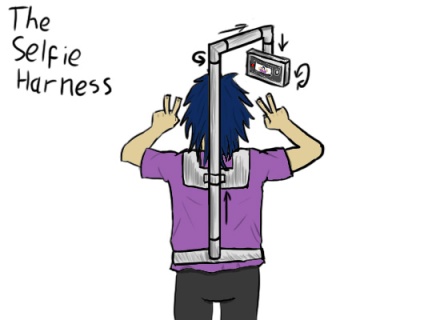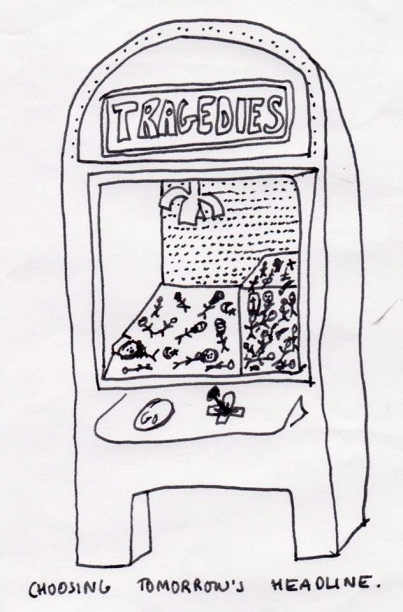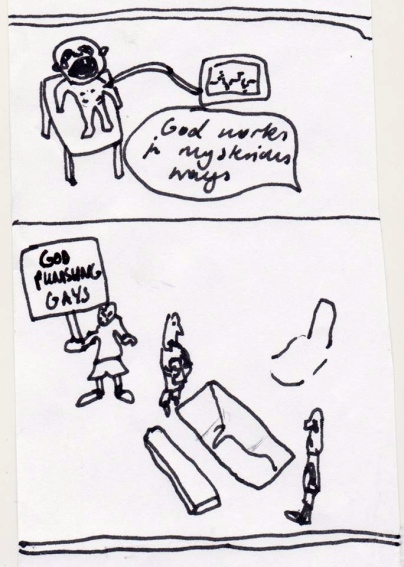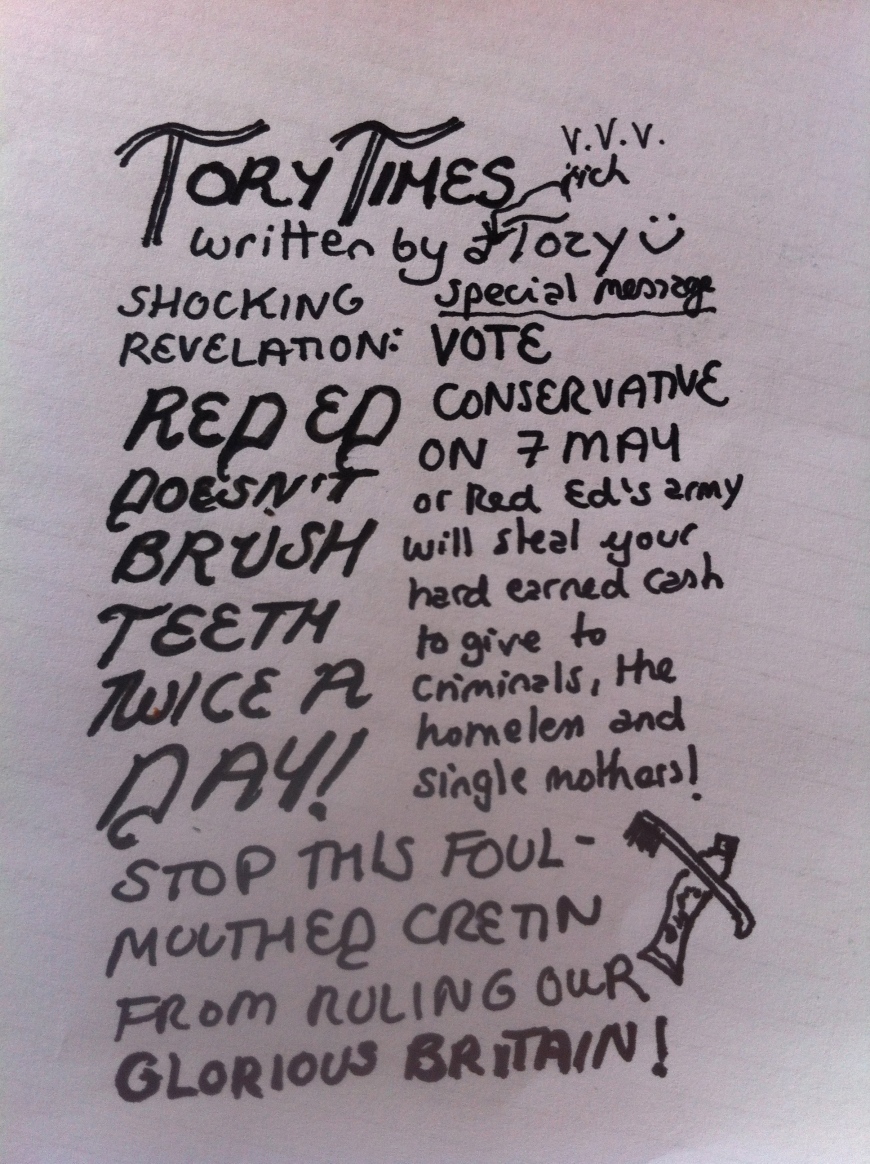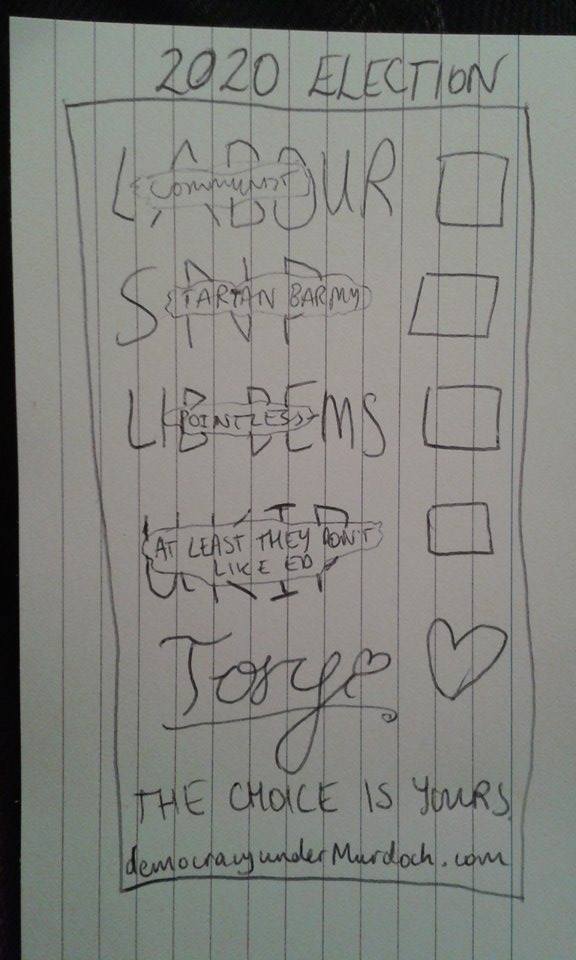Month: March 2015
It’s time to get rid of private schools!
Last year, we were greeted with the news that our local independent and preparatory school, Malsis School, was to face closure due to the deteriorating number of students and the subsequent impact on their “cash flow”.
Personally, I was overjoyed. Although the loss of a school is something that should not usually be celebrated, I have always detested private schools. The morals that they stand for and the history that they were built upon no longer have a place in a modern and democratic society. It is high time they were removed and that they finally gave something back to the normal, tax paying, state education receiving, working people of Britain.
The fact that in the UK we still have children being given superior education because of their parents’ wealth rather than their own intellect astounds me. It instils in them a sense that they can buy their way through life, rather than the ‘work your way to the top’, meritocratic mantra that everyone else is expected to swallow. The attitude of the parents turns me off too. Often, they attended that school themselves and are keen to keep it in the family. Also, the division ensured by private v state schooling is inherently wrong: it’s the social separation of CHILDREN based on a family’s income. Such attitudes only further the elitism that private schools so fervently encourage, whilst simultaneously weakening the state education system.
The detrimental effects on the state sector are huge. With private schools sucking up the best teachers (because they can be tempted by longer holidays, higher pay and smaller classes), the best resources and often intelligent and hard working pupils, comprehensive schools begin to lose these assets. Not completely, but definitely significantly.
Moreover, private schools are a dirty memory of when our class system was in full flow and they were the training houses of the aristocracy. They represent a period in our history when we were repressive of the poor and indulgent of the rich. Britain should have risen above the class system long ago, yet the millstone around our neck is the private education system, holding us back. And while only 7% of school-aged population attend them, the consequences of the continuation of these outdated institutions have an impact on us all. Why do we stand for it?
Well – arguably because those who go to private schools (i.e. the rich) control lots of the decisions made in our society, and it is simply not in their interest to end this unjust system. One third of all MPs were privately educated. Almost sixty percent of the Cabinet were privately educated. Forty-seven percent of newspaper columnists were privately educated. These statistics are frightening, and prove the myth of meritocracy to be total bullshit – as well as explaining why the system has never been overturned.
And don’t even get me started on the “charitable status” that so many private schools have, for reasons that have never been made entirely clear. Independent schools are renowned for being insular and elitist, and to claim they are charities is laughable at best and abhorrent at worst. Not only do they not provide any of the services of a modern charity, but they dirty the very name. With this status, they are able to claim an 80% tax reduction, whilst state schools are expected to deal with continuing cuts to their funding. It is the classic conundrum of easing the lives of the rich whilst stretching the less affluent to breaking point. If we gave tax cuts to the most disadvantaged schools rather than the most advantaged, surely it would result in better teaching for the poorest schools, whilst the extortionate prices of private schools would be more than enough to keep their heads above the water.
Meanwhile, under the current government (whose Cabinet mainly comprises privately educated men, as you’ll be aware), private schools have been subsidised by up to £700m a year. As critics have suggested, we may as well subsidise five-star hotels. These are businesses, nothing more and nothing less, and therefore such subsidies are unjustifiable and, I believe, immoral. The only vague form of relief we see are Tristram Hunt’s (Labour’s shadow education secretary) plans to remove the subsidies that private schools receive should they fail to form positive, working relationships with local state schools. Sadly, this is not as radical a measure as I’d have liked, and does little to remove the arbitrary injustice of a government that favours those in the private schooling system.
Private schools represent the very worst that capitalism and the class system can create when they come together, the ugliest love-child you can picture. The sooner we remove these bastions of privilege the better, as it will also remove the last remnants of crappy society built on injustice. Nothing (save the rituals of Westminster) is as anachronistic as these institutions. It is time for our generation to start the fight against elitism, and fight for social equality; a value intrinsic to our sense of morality. Private schools, your time is up.
written by Tom Blake, 16, Yorkshire
DIY – the scene that creates itself
EASY LINKS FOR WOULD BE DIY-ERS
- DON’T MAKE A SCENE – A FIELD GUIDE TO PUTTING ON DIY GIGS
- DIY SPACE FOR LONDON
Why the best way to fight capitalism is to put on free gigs:
Live music is a blessing so it is no wonder that since the birth of punk in the 1970s, people have been doing it themselves; putting on their own shows and creating their own scenes regardless of the conventions of the mainstream. D.I.Y was born as a rejection of consumerism, an attempt to create something pure, something uncorrupted by the greed of the music industry. Today, we see a return to this ideology. 2014 alone saw the closure of such seminal venues as The Blind Tiger in Brighton, The Cockpit in Leeds, as well as The Peel, Madame JoJo’s and Buffalo Bar in London. With more and more live venues closing down people are seeking an alternative, taking things into their own hands, and doing it for love rather than money.
D.I.Y music is about self-sufficiency. It is recording, producing and marketing your own music, booking your own shows and doing your own merch; all with limited means. A great example of this is Royal Forest, an experimental band from Austin, Texas. Their album Spillway is a combination of field recordings, the locations of which comprise of an aeroplane flying over Texas, the depths of a WWII submarine and the midst of a lightning storm in the Monahan Sandhills. The band recorded, produced and released the album themselves on their own D.I.Y label, King Electric.
However, arguably the most exciting thing about D.I.Y music is the D.I.Y scene it inevitably creates. America seems to be thriving with such at the moment; Speedy Ortiz heralding from Boston’s scene, while Twin Peaks emerge from Chicago’s. The consensus of such bands is that D.I.Y creates a community that is inclusive, stimulating and above all supportive. Yet D.I.Y is not confined to the wide streets, large houses and cavernous basements of America. Leeds saw the birth of Eagulls (pedantically described as ‘post-punk’ (a word that thoroughly annoys me and is in need of a replacement immediately)) in dubious house shows and basement gigs. Furthermore the band’s first release Songs of Prey was on cassette, a D.I.Y medium that is far from obsolete. Looking back to the Riot Grrrl movement of the early 1990s, cassettes like zines were a rejection of consumerism and an embrace of communal creativity. Burger Records (“the answer to what happened to Rock ‘n Roll” Kim Fowley) follows this ideal, releasing music on cassette and unknowingly reinvigorating the format. The label began as a way to put out the music of their own band Thee Makeout Party as well as their friends’ Audacity. Now they have over 500 artists on cassette, even reissuing long lost masterpieces like Roky Erickson’s Evil One, as well as continuing to support Orange County’s thriving garage scene.
So what about London? Where’s the D.I.Y ethic, this communal goodness? Well the answer is everywhere, especially in the South East; you just have to know where to look. The Fat Whites’s notorious Slide-In was my introduction to the scene. Suddenly, I realised live music didn’t have to be confined to the protocols of specified venues; that in actuality a pub, a basement, a living room provided the exact right kind of claustrophobic excitement that live music thrives off. As I went to more and more gigs I began to see the community inherent to the music, and experience the belonging it fostered. Now I could distinguish Bat-Bike from Meatraffle, Telegram from Sleaze, Pit-Ponies from Phobophobes (all names which never fail to amuse my parents).
In 2012 the Live Music Act declared that live performances in venues holding fewer than 200 people could be staged without a special entertainment license. This was an attempt to claw back the diminishing and ever necessary D.I.Y scene. January of this year saw Independent Venue Week, a celebration of small music venues across the country. While Palma Violets took on Scunthorpe (er – that’s a town in North Lincolnshire apparently?) the Fat Whites returned to Brixton, to The Windmill.
However London’s D.I.Y scene is not confined to the growing yuppie kingdom of Brixton. There’s Steez, the non-profit art community whose monthly gigs are predominately held at the Fox and Firkin in Lewisham (sign the petition to save it y’all). They preach that ‘everyone’s art deserves a place in which it can be nurtured for real, without the profiteering, just for the love’, the ethic at the heart of D.I.Y. There’s Mickey Smith, the founder of the Chronic Love Foundation, there’s Rye Wax, there’s Trashmouth Records and there is any number of D.I.Y families I have yet the fortune to discover.
So why write this article? Apart from my general enthusiasm, the rationale lies in going to arguably the first show true D.I.Y show I have ever seen. It was Thee MVPs 2.5th D.I.Y show (the 0.5 attributed to the fact it was the first venture outside of the MVP house in Hackey Wick). It was BYOB, £4 for four bands (The Whig Whams, Ex’s, Thee MVPs and Twin Peaks (the latter two of which both have music out on cassette – hook it up)) and it was in godforsaken Bow Church. The show was organised by Thee MVPs frontman Charlie Wyatt in a rehearsal space under a gloomy railway arch. It was here that I got to taste the real blood of true D.I.Y. This wasn’t a pub, or a specified venue, it was a space utilised because the bands wanted to play. It wasn’t about money or overpriced pints; for once it was truly just about the music. Stripped of the barriers and high stages of larger spaces, the audience and the artist merged. As Twin Peaks’ Cadien Lake James said ‘I just prefer it, there’s no obligations no sound guys, no techies and no stage, just us and the crowd connecting like friends with no separation.’ So it was that as the screaming vocals of Twin Peaks filled up room and I fought for the better position with the Whig Whams lead, forbearing to save my now thoroughly bruised knees from the edge of the stage. The crowd was righteously inexhaustible, the confined space exasperating their excitement and aggression. Where Charlie Wyatt had bent his body over in tight embrace of his guitar, then jumped into the crowd to stage dive, Twin Peaks were slightly more reserved though nonetheless vigorous in delivering song after song of garage-punk and rock ‘n roll. Somehow it was completely different from any other show I had been to, it was emphatically independent; more like a house party than a gig, the merging of the bands with their audience more natural and complete.
Thus it seems D.I.Y is far from over. It’s everywhere, it just needs to be found, supported, celebrated and loved. With the dominance of consumer culture forever being forced down our throats, it is now more important than ever to nurture ‘these little moments that are outside of the logic of capitalism’. So go out and find some D.I.Y music, even better start something yourself. Embrace the D.I.Y ethic, do something you love, forget about the money and start living.
written by poppy, 18, LDN
Boys Do Cry
Feminism for Men
So today (16/02/2015), I heard it announced on the radio that suicide levels have reached an all new high, increasing 4% from last year. And the largest group of people committing suicide? Men. In fact one quarter of all deaths of males aged between 20 and 34 in England and Wales in 2013 were from suicide.
Now, this seems off topic from my title, (which I’m sure some of you have already groaned at) but let me explain where I’m going with this –
Toxic masculinity.
For those of you who don’t know toxic masculinity is defined as, “the socially-constructed attitudes that describe the masculine gender role as violent, unemotional, sexually aggressive, and so forth.”
Personally, I’m a proud raging feminist and I think that women throughout history have had it pretty shitty. Generally, this seems to be accepted as fact even by people who don’t accept the feminist label. And following this logic, one would expect suicide rates to be higher among women, right?
Wrong.
UK suicide rates of men are roughly 3.5 times higher than that of women.
But why?
In an ideal world, where gender equality was a reality, although not eradicated, the suicide rate for men would be greatly reduced falling a lot closer to that of the female rate, because suicides due to gender would be reduced. (Gender related suicides don’t just include those of transgender individuals but simply the everyday pressure of gender stereotypes and pressures).
Out of the two genders men are more often than not viewed as the villainous sex; they’re more likely to be verbally or physically aggressive and sexually abusive. Obviously it’s only a small proportion of men who meet this branding or criteria and it’s an unfortunate label to live with.
As well as being given a bad name, there is an inherent expectation of men to be stronger than women – both physically and emotionally.
This belief undeniably leads to many men bottling up issues or feeling (until it eventually becomes too much).
On the other hand, women are known to talk a lot: always communicating and sharing. This sharing allows us to de-stress and let other people help us with our problems (“a problem shared is a problem halved.”)
ALSO – Sexism means that men are expected to be better than women: have a more demanding job, earn more money and complain less.
A lot of the time when a woman can’t deal with the stress of her job, she’ll go and see a friend, maybe have a bit of a cry and be able to look at the problem with fresh eyes in the morning. But what if a man had an emotional outburst? Well heavens no, that just wouldn’t do! The likely result would be an onslaught of gay and effeminate comments thrown his way.
It seems men are often forced down a route of appearing calm and collected on top, even if under the water they’re paddling like crazy and soon won’t be able to go fast enough.
Now obviously I’m casting some stereotypes and generalisations, but these need to be used to make the point.
The point being: men need feminism.
They need it just as much as women do, who knows, maybe more.
If gender equality was a reality then the pressure on men to outperform women would be erased.
Alongside this, mocking of emotions or feeling would become feeble (crying “like a girl” would no longer be a thing).
Last month I attended a debate about male rights activists, where some friends of mine made the glaring error of naming themselves feminist but saying that they did not support male rights activism, making me cringe internally.
Feminism is about supporting both genders and their rights equally, and to not acknowledge that men too need help, although for different reasons, is simply foolish.
So I guess what I’m asking you to take away from this is that men have it hard too; the figures don’t lie. So let’s try and end toxic masculinity by doing small things. If you see a man in tears, don’t tell him not to cry about it, even jokily, ask him if he wants to talk.
If you see a woman being abusive or violent, don’t let her get away for just because she’s female, call her out on it.
If a guys wearing make up to cover up acne scars or just to make himself look better, tell him that he looks good, not that he’s queer.
Simple things. Remember that an unequal society is unhealthy for all of us, because forgetting that Boys Do Cry, is detrimental.
– Melanie McAllister
Why would any1 join the Labour movement in 2015?
A Dual Account:
Youth no1: Below is a list of reasons I decided to join the Labour Party. This is not intended as a list to convince you to vote for or join Labour, but is rather a list of reasons that I decided to join – although you may view them as ignorant, naive etc.
Youth no2: Last month I joined the Labour Party. Even though I’m not a labourer. Even though it’s not 1964. Even though I’m not male. Even though I’m not a member of a Trade Union.
Why then? And it was definitely NOT because of Harry Styles.
1. Ed Miliband – despite being called ‘Red Ed’ by right wing press (which unfortunately he is far from being), has still shown some promising support for more left wing policies – such as nationalisation of the railways. He has also shown his ability/ willingness to take on the right wing capitalist market forces, such as his campaign over energy prices, and Labour’s promise to freeze them.
2. Nationalisation: I’m committed to nationalisation because it ensures workers’ rights (to strike, to proper pensions/salaries/conditions/leave etc.), public benefit from profits and the prevention of the condensing of power into the very few people who make a fuck load of money out of fizzy drink businesses.
3. Labour’s donations are generally morally legitimate; Tories’ donors are dodgier even than is widely known. Yes, they have lots of extremely rich ones (which proves who their policies are designed for) and that alone is a bit of a grim fact anyway; but these guys also have loads of influence on what policies are made/or even considered. They have shadowy meetings where party lines are discussed in order to safeguard the high profits of these big corporations. This stuff can limit human rights etc. – but it’s also a transfer of power into the hands of people we didn’t even elect.
4. Futility of division; realistically (or cynically) I also believe that Labour are the only (current) alternative to getting rid of this insidious TORY government. This is due mainly to the FPTP system, however I believe the Left needs to unite during this time, overthrow the Tories, and then think about reform etc. At a time when one of our last remaining socialist institutions (the NHS) is being threatened, I do not think now is the time for the Left to divide.
5. The NHS. Clement Attlee, Labour PM after WW2 created this shit. And I really like it. Whatsmore, there is plenty of terrifying evidence that this government is slowly outsourcing the NHS to the private sector, without us knowing. It’s really, really, really sickening.
6. Community Spirit. Also, truthfully, in an age when young people have relatively little actual power I have to admit it feels quite nice to be part of a bigger organisation, where you feel like something positive could actually be achieved. For a young person interested in politics, yet with no idea of how to channel this constructively, it can feel productive to be part of something as big (historically and currently) as the Labour Party. (Does this sound too Hitler youth-ish?
7. Labour Party members are nicer. John O’Farrell, thoroughly objective author, said this so I’m not making it up. His research shows Tories’ houses to be neater (yawn) and for Labour supporters to be more likely to have a disused moped in their garden (cool!). But really, I genuinely believe this. Labour is a liberal party, the party who legalised homosexuality – arguably before the majority of British wanted it – in the 60s. No other party is committed to social equality of opportunity in the same reverence. Nice people vote Labour, a more representative party including more women and ethnic minority MPs than any other.
8. Positivity of representation now/in the future. Like many, I don’t believe the Labour Party is perfect, and personally I would like it to openly commit to many more left wing policies, as well as hold greater reflection of the working class in its membership, or people with varied life experiences. However, like others such as Owen Jones I believe this CAN be achieved within the party, rather than outside of it.
9. Equality. Cos of my belief in the propagation of wealth amongst the many, not the few. Labour favours higher taxes for the rich (eg the mansion tax) and higher benefits for the poor to create a more equal society.
10. Politics and women/ethnic minorities. The Labour Party also has a MUCH greater emphasis on the recruitment of and appealing to both women and ethnic minorities. Recently I read that if Labour wins a set of key seats in London they will have equally as many women MPs as male. Whilst I am aware that the Party is by no means completely representative of Britain, in comparison with the Tories they are moving much faster in this direction.
11. Commitment and belief in a better society. Labour Party members believe stuff way more strongly. Hence, the well known and destructive internal fighting that Labour has often suffered – which the Tories HAVE NOT to the same extent, in modern Britain. That’s cos the Tories don’t care. They’re all careerist anyway. Labour CARE passionately about the future of Britain and the happiness of its population. They care enough to deliberately lose elections (I’m not advocating this), to abstain from Conference votes, to push policies that had no chance of winning them elections (unilateral disarmament). Maybe I’m young and naïve – and I do worry about that – but maybe that’s just really fucking commendable. The Tories do not argue, they just need to be told what to do to restore/remain in power. Like under Thatcher. That’s not even democratical – plus it’s lame.
12. Red is a better colour than blue.
13. Historical reasons. Finally, I think part of the reason for me joining the Labour Party is nostalgia for the old Labour, and I (possibly unrealistically) hope that they can some day return to the Socialist, anti-Capitalist Party they once were, with a true emphasis on working class rights and power.
14. Societal reasons. Labour is the party of the PEOPLE and of together-ness. The Tories are the party of the rich, the party of individualism, the party of no society, of every man as an island, with a frankly revolting get-rich-quick-fuck-others attitude. This is an obvious point, but it’s the most vital. Especially in the age we live in – the age that Thatcher created – the age of 650 TV channels, branded clothing, food banks in a city the bankers run. They stand for competition not community, status not kindness. I could go on. You probably get it.
BTW if you’re still angry about Iraq (which I am and I get that it’s hard to forget) then good news: Jack Straw (foreign secretary at the time) has been suspended – so you can rejoin the Party (if they ever let you leave, which apparently they didn’t to quite a lot of angry ppl)
If this has, amazingly, pesuaded you then you can apply easily on Labour’s website for just ONE POUND A YEAR.
– you get a cool, really old looking (*retro*) membership card too

